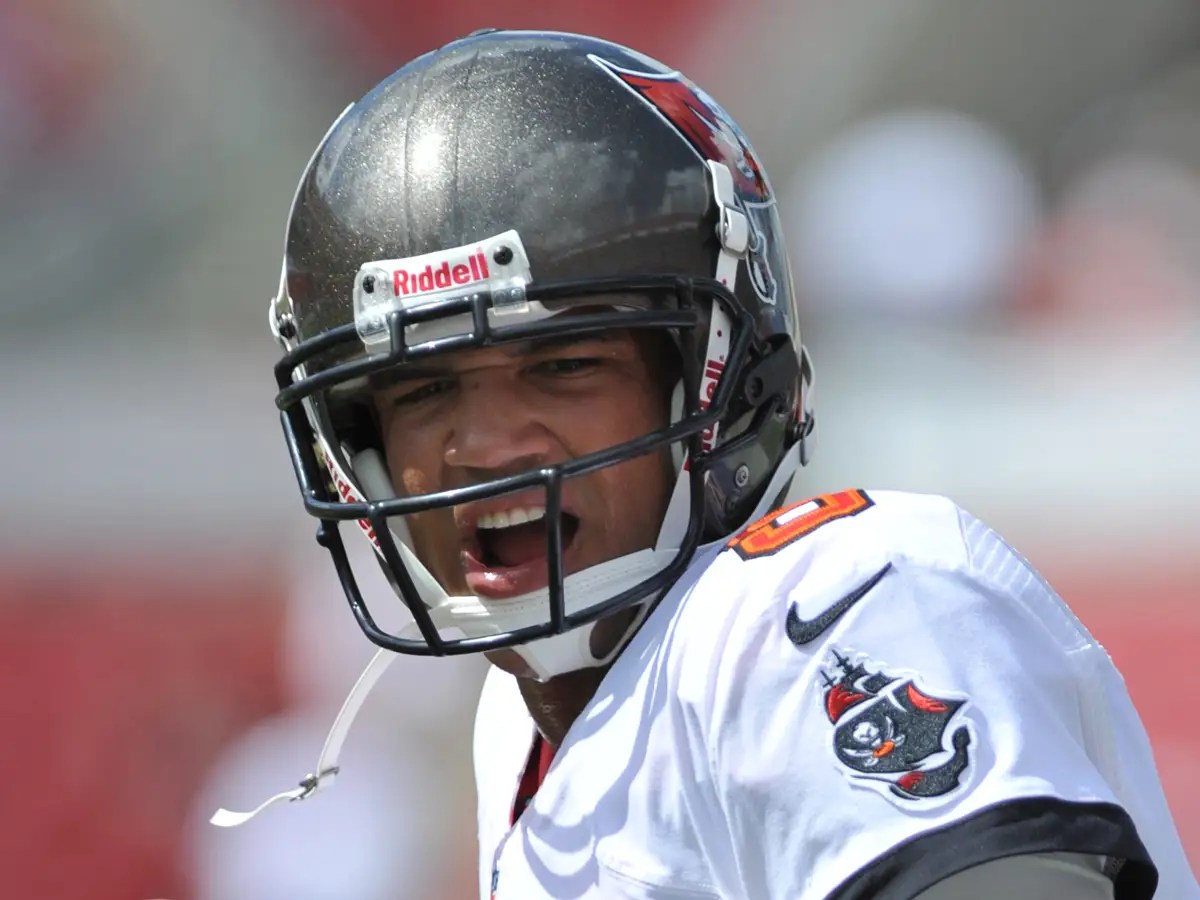From Phenom to Forgotten: The Rise and Fall of Josh Freeman
Josh Freeman, a former Tampa Bay Buccaneers quarterback, once captivated fans with his potential. His journey, however, took a turn, leaving many bewildered. This isn’t merely a sports story; it’s a glimpse into the complexities of a career marked by both promise and disappointment. Let’s explore the factors that shaped Freeman’s NFL experience, from his early brilliance to the challenges that ultimately derailed his trajectory.
Early in his career, Freeman flashed signs of greatness. In 2010, he threw for 3,451 yards, 25 touchdowns, and only 6 interceptions, earning him a Pro Bowl alternate spot. However, as teammate Vincent Jackson once observed, “[Freeman] had the physical gifts, but something always seemed to be off.”
This inconsistency, coupled with off-field concerns and reported clashes with coaches, cast a shadow over his career. When rookie Mike Glennon arrived in 2013, it marked the end of Freeman’s time in Tampa Bay.
His departure from the Buccaneers didn’t change his fortunes. Brief stints with the Minnesota Vikings, New York Giants, and Miami Dolphins provided glimpses of his potential, but he never regained his footing as a starting quarterback.
So, what led to Josh Freeman’s downfall? Experts suggest a confluence of factors. Inconsistency plagued his performance, and coaching changes likely hindered his development. Off-field issues, including alleged substance abuse problems, undoubtedly added to the pressure. The immense weight of being a franchise savior, a burden placed on many young quarterbacks, may have also contributed to his struggles.
Unraveling the Enigma: What Happened to Josh Freeman?
Josh Freeman’s time in the NFL was a rollercoaster, with his early success in Tampa Bay giving way to a series of setbacks and missed opportunities. The arrival of Greg Schiano as head coach marked a turning point, as whispers of a clash between the two began to surface.
This discord, along with inconsistent on-field performance, led to Freeman’s benching in favor of rookie Mike Glennon in 2013. The decision sent shockwaves through the league and culminated in Freeman’s release from the team he was once poised to lead.
After leaving Tampa Bay, Freeman embarked on a journeyman’s path, playing for several teams but never reclaiming a starting role. His NFL career concluded in 2015 with the Indianapolis Colts.
The reasons behind his decline are multifaceted. Some speculate that the coaching change in Tampa Bay and the reported friction with Schiano played a significant role. Others suggest that inconsistent performance and an inability to handle the pressure of being a franchise quarterback contributed to his downfall.
It’s essential to acknowledge the intense competition within the NFL. Even highly talented players can struggle to thrive. The leap from college to the professional level is immense, and many young quarterbacks find it challenging to acclimate to the NFL’s speed and complexity. While Freeman displayed early promise, he couldn’t maintain that level consistently.
Josh Freeman’s story exemplifies the unpredictable nature of the NFL. Talent alone isn’t always enough in a league where a confluence of factors can shape a player’s destiny.
Unveiling Josh Freeman’s Draft Story: A Deep Dive into the Buccaneers’ Gamble
In the 2009 NFL Draft, the Tampa Bay Buccaneers, seeking a franchise quarterback, took a chance on Josh Freeman, selecting him with the 17th overall pick. This decision surprised some, as Freeman still had a year of college eligibility remaining. Nonetheless, the Bucs saw untapped potential, envisioning him leading their team for years to come.
However, Freeman’s performance in the following seasons declined, marred by inconsistency both on and off the field. He seemed to clash with his coaches, ultimately leading to his benching in favor of Mike Glennon in 2013. This marked a turning point, as he was released by the Buccaneers and never reclaimed a starting role in the league.
The reasons behind his decline are likely complex. Some experts point to his inconsistency and struggles in his personal life as contributing factors. Others speculate that conflicts with the coaching staff played a significant role.
Outperforming the Competition: Josh Freeman’s NFL Earnings
Josh Freeman’s NFL career, though brief, allowed him to earn a significant sum. During his six seasons in the league, he earned an estimated $30 million in salary and bonuses.
His most lucrative year was 2012, earning $7,650,000 with the Tampa Bay Buccaneers. His initial five-year, $26 million contract reflected the team’s belief in his potential. However, as his performance declined, so did his earning potential.
Several factors influence a player’s earnings: the length and success of their career, initial contract size, performance bonuses, and subsequent contracts. Given his early promise, one could speculate that Freeman might have earned considerably more had his career followed a different trajectory. A longer, more consistent tenure in the league could have translated into a substantially higher income.
Are you curious about the wealth accumulated by other notable figures? Explore the financial status of actress Carla Gugino or delve into the financial history of astronaut Buzz Aldrin.
Key Points:
- Despite a promising rookie season, inconsistency plagued Freeman’s performance.
- Off-field issues and reported clashes with coaches hindered his progress.
- The arrival of rookie Mike Glennon signaled the end of Freeman’s time in Tampa Bay.
- Freeman struggled to find success elsewhere, becoming a journeyman quarterback.
- Factors contributing to his decline include consistency issues, coaching changes, personal problems, and the pressure of being a franchise savior.
- Freeman’s career serves as a reminder that talent alone is not enough for NFL success.










